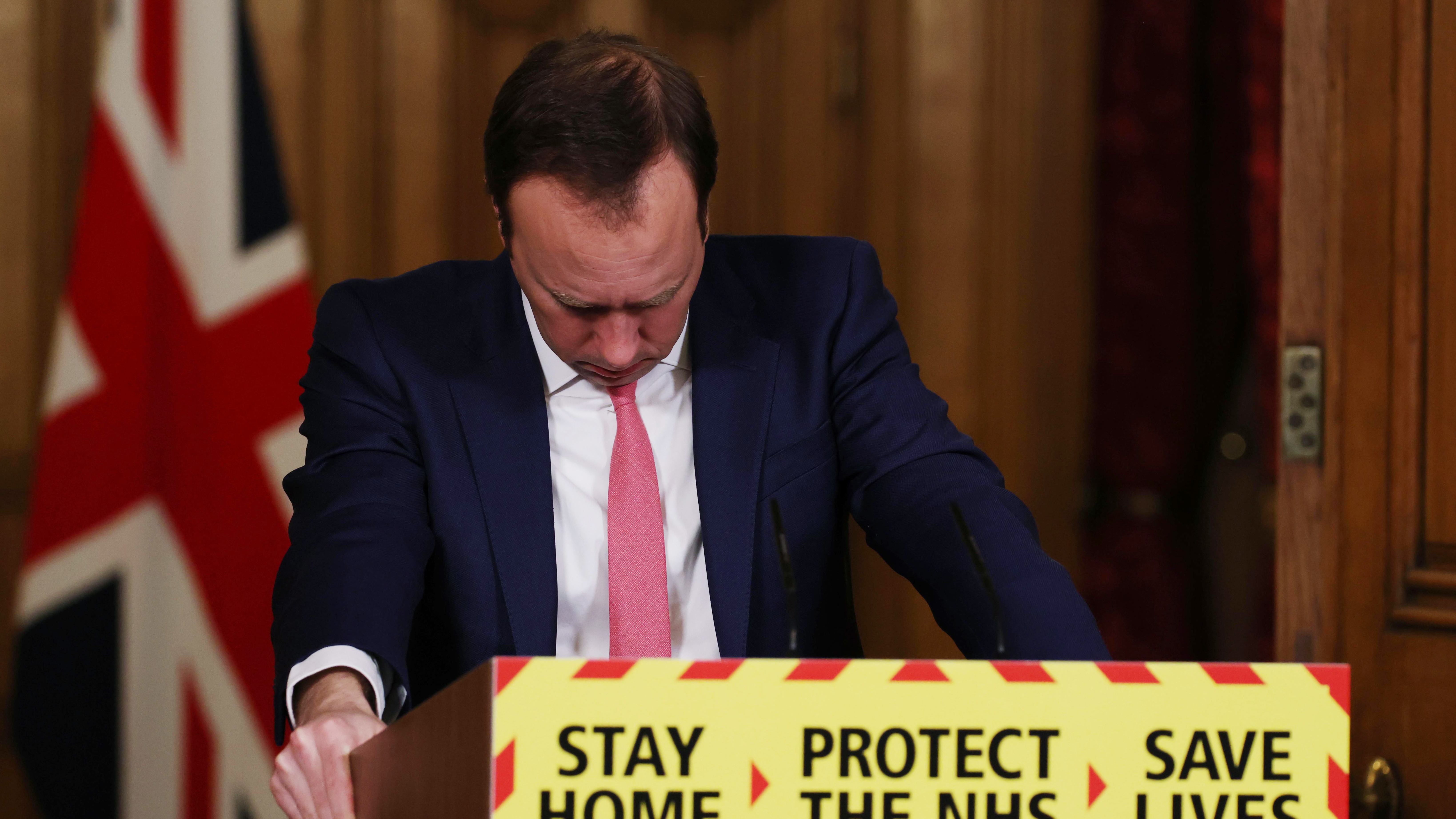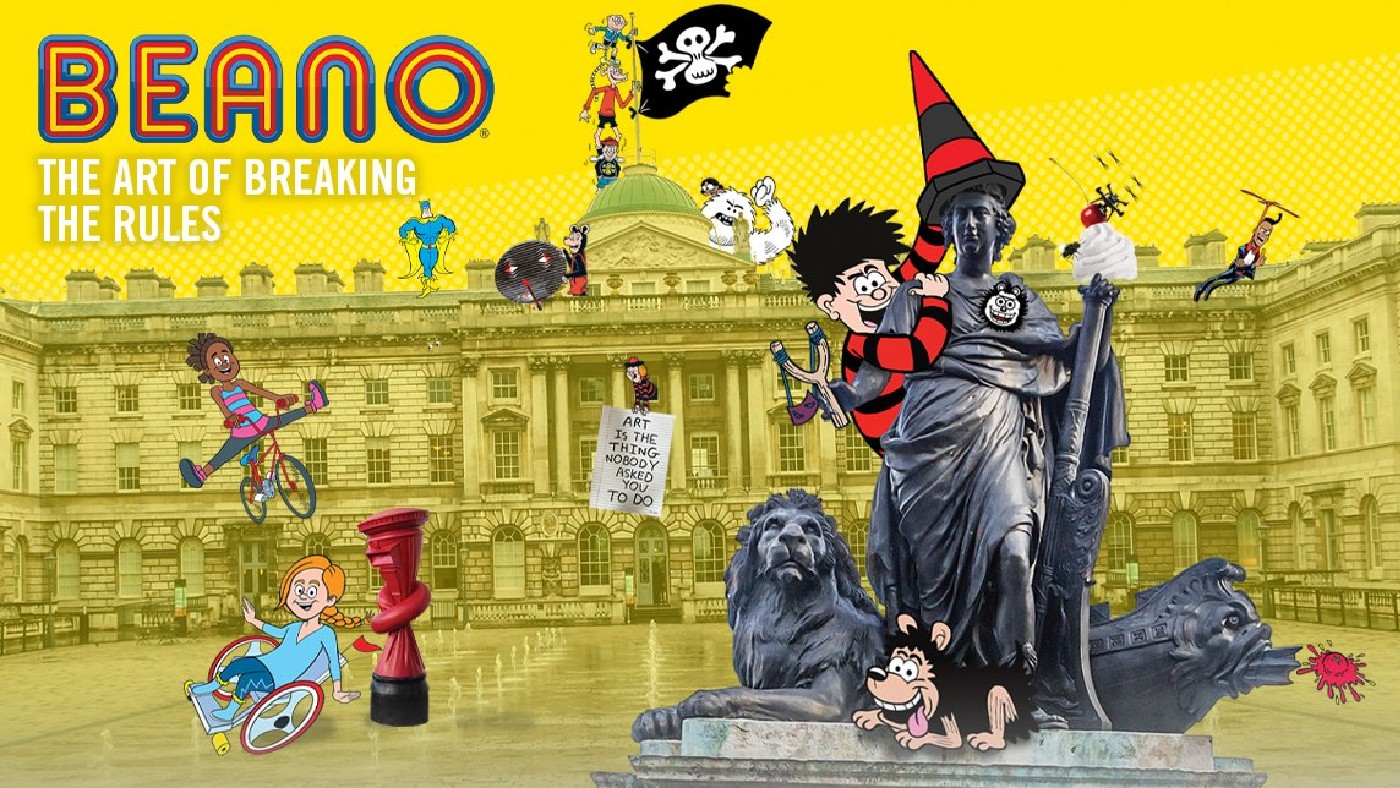‘It’s easy to lambast Matt Hancock without diving into his relationships’
Your digest of analysis and commentary from the British and international press

A free daily email with the biggest news stories of the day – and the best features from TheWeek.com
You are now subscribed
Your newsletter sign-up was successful
1. So Matt Hancock has a messy personal life – who doesn’t?
Victoria Richards in The Independent
on Westminster scandal
“Have you ever cheated on a partner? Has anyone ever cheated on you? Do you know anyone who’s cheated on their significant other?”, asks Victoria Richards in The Independent. “Chances are, everyone reading this will be able to answer ‘yes’ to at least one of these questions.” Turning to reports that Matt Hancock has cheated on his wife, Richards wonders whether these allegations really matter, concluding: “Not so much.” After a year of criticism, “there’s enough to lambast the health secretary about without diving into the gritty details of his relationships: his poor performance during the pandemic, his failure to boost Covid testing and ventilator capacity, the lack of procurement of personal protective equipment (PPE) for NHS and care staff”. However, when it comes to the details of Hancock’s personal life, “let he who is without sin cast the first stone”.
The Week
Escape your echo chamber. Get the facts behind the news, plus analysis from multiple perspectives.

Sign up for The Week's Free Newsletters
From our morning news briefing to a weekly Good News Newsletter, get the best of The Week delivered directly to your inbox.
From our morning news briefing to a weekly Good News Newsletter, get the best of The Week delivered directly to your inbox.
2. Why are we letting a largely defeated virus change the nature of our society?
Fraser Nelson in The Telegraph
on pandemic milestones
“Test and Trace data for ‘amber’ countries shows that 99.6% of those returning test negative”, writes Fraser Nelson in The Telegraph. “So where, then, is the threat?” When the virus first arrived in the UK, “there was a clear justification for lockdown: without it, the NHS would be overrun, hospitals would reject patients, and this would threaten wider societal collapse”. But analysing hospital admission data, he says that “the vaccines work”, adding: “This could be quite a milestone: we might have just defeated Covid.” So “if Chris Whitty and Matt Hancock can no longer claim that the NHS is in operational danger, how can they justify keeping their draconian powers?”. “Should we now let a largely defeated virus change who we are as a people?”
A free daily email with the biggest news stories of the day – and the best features from TheWeek.com
3. Britain and EU are learning a wary waltz
James Forsyth in The Times
on a new alliance
Boris Johnson once described Brexit as “the greatest apple of discord thrown into British public life”, writes James Forsyth in The Times. And five years after the EU referendum, “one thing that is not settled is what relationship the UK and the European Union will have in the years to come”. With signs of a “truce” in the trade dispute over Northern Ireland, an “optimist” might conclude the two sides “look as if they are learning how to waltz with each other”. He argues that both teams have learned that breakthroughs are more likely if they do not “escalate things”, adding that “Brexiteers” point to the fact that the EU has even fallen out with Switzerland, while “Eurocrats” highlight the “prickliness of Brexit Britain”. Five years after the life-changing vote, he adds, “there’s still time to make Brexit the beginning of a new alliance and not, just, the end of an old one”.
4. No one should be penalised if they want to carry on working from home
Gaby Hinsliff in The Guardian
on a gender divide
The dating app Bumble has given its entire workforce a week off, writes Gaby Hinsliff in The Guardian, and if those workers have emerged from a “mentally and physically draining year of holding things together in a pandemic feeling frankly knackered, then they’re certainly not alone”. This opens the question, she says, of what happens next for workforces. The home worker’s “perennial fear of being excluded from some loop that they didn’t know existed is seeping anxiously back” and “may only increase when the ‘work from home’ rule is finally abandoned”. She identifies that those companies that are offering staff the freedom to choose whether they return to the office post-pandemic or carry on working mostly from home “risk inadvertently deepening the gender divide if it’s predominantly women with caring responsibilities who end up taking the home option”. Instead, companies and the government must “monitor very carefully the gendered take-up of home working and its impact on pay or prospects”.
5. The secret of George Osborne’s success
Sam Leith on Unherd
on a busy CV
“Good God, I thought as the news broke yesterday morning, is there nothing the man can’t do?”, writes Sam Leith on Unherd following George Osborne’s appointment as chair of the British Museum. The former chancellor has managed such a portfolio of jobs because he is “the Right Sort Of Chap”, he adds, explaining that in Osborne’s world, you reach “a level of seniority by sucking up to the right people and getting in the right gang – and once you’ve made it, you’ve made it”. The “right sort of chap” is “part of the nepotistic, private-school-dominated establishment, in which your path is eased by knowing the right people and projecting the right front”. But this leads to a dangerous assumption, he warns, that “the Right Sort of Chap is the right person for the job, even if they’ve proved otherwise, time and again”.
-
 Political cartoons for February 15
Political cartoons for February 15Cartoons Sunday's political cartoons include political ventriloquism, Europe in the middle, and more
-
 The broken water companies failing England and Wales
The broken water companies failing England and WalesExplainer With rising bills, deteriorating river health and a lack of investment, regulators face an uphill battle to stabilise the industry
-
 A thrilling foodie city in northern Japan
A thrilling foodie city in northern JapanThe Week Recommends The food scene here is ‘unspoilt’ and ‘fun’
-
 ‘Irony’ as Zoom calls staff back to office
‘Irony’ as Zoom calls staff back to officefeature And other stories from the stranger side of life
-
 The U.S. veterinarian shortage crisis
The U.S. veterinarian shortage crisisSpeed Read With an anticipated shortage of 15,000 vets by 2030, it will be harder to get care for pets
-
 Company teaches mask-wearers to smile again
Company teaches mask-wearers to smile againfeature And other stories from the stranger side of life
-
 Beano comics sent to Australia
Beano comics sent to Australiafeature And other stories from the stranger side of life
-
 Bees delay flight for three hours
Bees delay flight for three hoursfeature And other stories from the stranger side of life
-
 Global happiness has been 'remarkably resilient' over the past three years
Global happiness has been 'remarkably resilient' over the past three yearsfeature
-
 Ministers considered killing all cats during pandemic
Ministers considered killing all cats during pandemicfeature And other stories from the stranger side of life
-
 North Korea imposes 5-day lockdown on capital to fight 'respiratory illness'
North Korea imposes 5-day lockdown on capital to fight 'respiratory illness'Speed Read